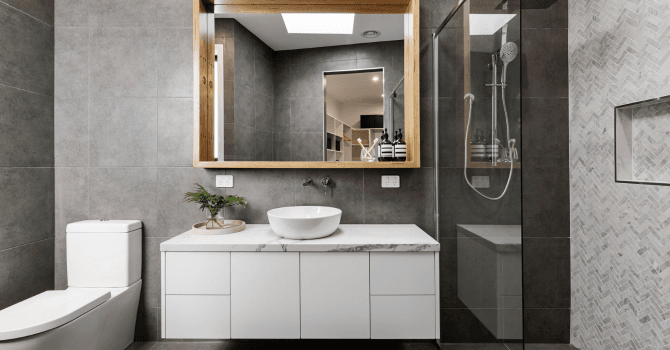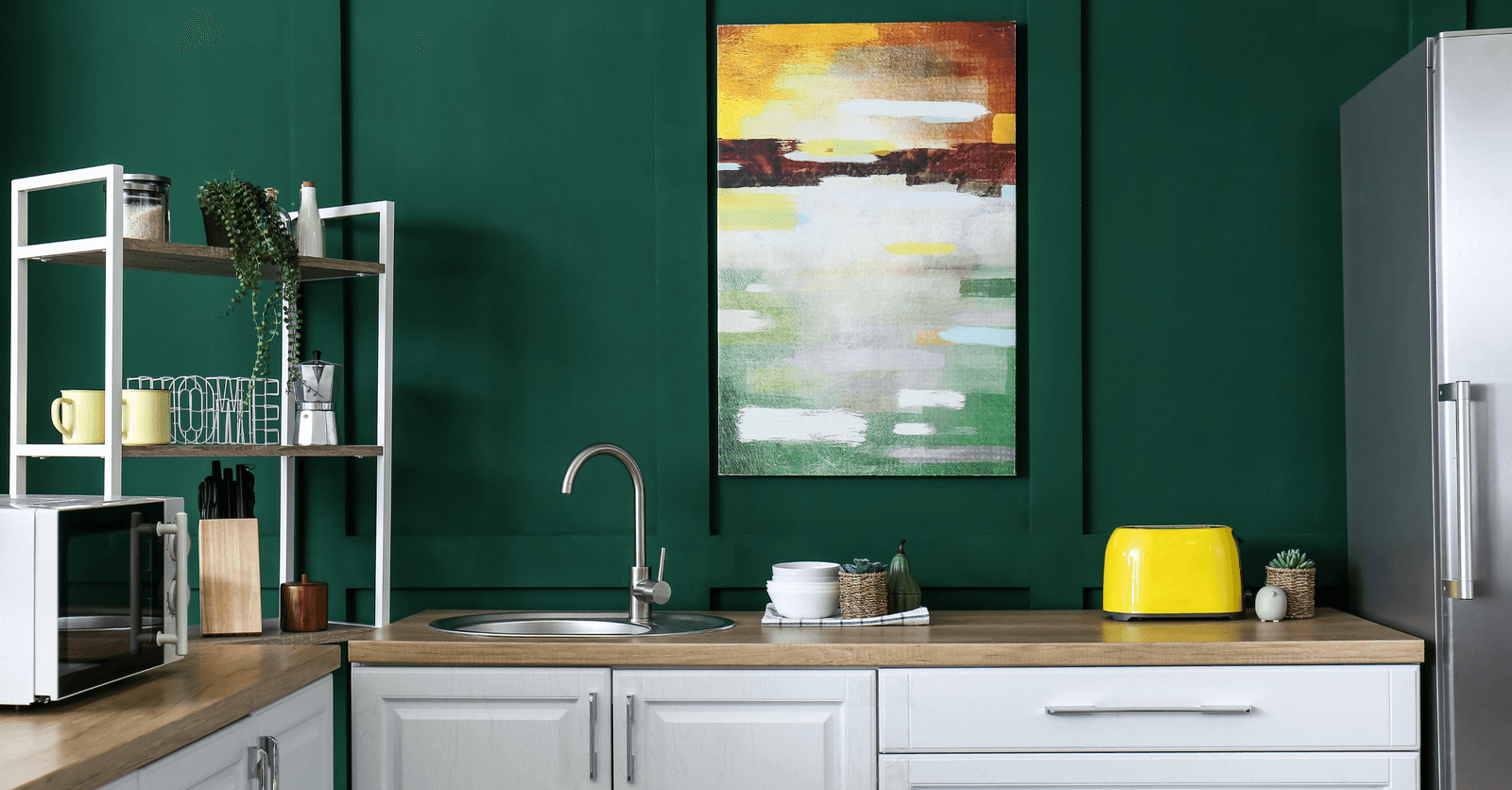Exterior Painting Services Cost Guide: How Much Is It in 2026?
By Editorial Team
Updated on January 28, 2026

Are you thinking about painting the outside of your house and wondering how much it would cost you? What factors are likely to affect overall costs, and how should you calculate your budget? This article will guide you through the different aspects of your project, from average prices based on the size of your house to additional factors that may affect the overall cost. We’ll also take a closer look at the types of paint to choose from, the necessary tools and equipment, and additional fees, such as permit acquisition and tool or equipment rental.
How Much Does It Cost Per Square Foot to Paint the Exterior of a House in Canada?
Size of House | Average Cost (DIY) | Average Cost (Pro Services) |
Small house | $1,400–$1,500 | $2,500–$3,000 |
Average house | $3,000–$4,000 | $4,500–$5,000 |
Big house | $4,500–$5,000 | $7,000–$8,000 |
The average gallon of paint costs between $25 and $100—one gallon typically covers 200 square feet. Consider all the tools and supplies you’ll need to complete the project, such as paintbrushes and painter’s tape to cut corners and trim. Bear in mind that collaborating with contractors typically doubles job costs. However, working with professionals ensures a job well done.
Small-Sized House
If your house is rather modest in size and you’re planning a DIY paint job, expect your house painting project to run you between $1,400 and $1,500. Should you hire professionals, costs will range from $2,500 to $3,000.
Average-Sized House
For medium-sized houses, DIY exterior paint jobs will cost between $3,000 to $4,000. On the other hand, if you rely on hired professionals to carry out the job, plan on spending between $4,500 to $5,000.
Large-Sized House
For extensive dwellings, DIY exterior paint jobs cost between $4,500 to $5,000. However, hiring qualified professionals to carry out the project will cost between $7,000 and $8,000.
What Are the Cost-Affecting Factors?

Source: Canva
Surface Area to Paint
Planning a budget for an exterior painting project in Canada is relatively straightforward. Calculating the entire square footage to paint will help you determine the amount of paint needed to evenly coat the exterior surfaces. To bigger the house, the bigger the surface to paint, ultimately meaning you’ll need much more paint.
Trim or No Trim
Another factor to consider is whether the outside of your house has trim around the windows and doors. If so, you can always choose a different colour or type of paint, depending on the material used for the trim. If you hire professionals, such an additional complexity can lead to increased costs.
Professional Service Costs
You may prefer to work with one or more professionals. As such, consider the cost of hired labour, which will be affected by the number of openings found around your house as well as the ease with which all exterior surfaces can be reached and painted.
Type of Material to Paint
The type of siding on your house can also affect the project’s overall cost. For example, vinyl siding is typically not as expensive to paint compared to wood since it doesn’t require to same level of prep work.
Paint Type and Quality
Additionally, the type and quality of the paint will influence the overall cost; naturally, high-quality paint is more expensive.
Choosing the right type of paint for your project hinges are several factors, one of the most important to consider when selecting a type of paint is its drying time. When it comes to exterior paint, there are two main types of paint from which homeowners can choose: latex (water-based) and oil paint.
Latex Paint
While latex paint typically dries within a day or two, it can take up to 30 days to fully cure.
Latex paint is a very sought-after option for exterior paint jobs, boasting several upsides:
It’s easy to apply and quick-dry, meaning the work can get done in record time.
It adheres rather well to most materials used to make siding and cladding—concrete, brick, stucco, or wood.
It’s weather-resistant and unaffected for the most part by temperature variations, which makes it a good choice in unpredictable climates.
It’s an eco-friendly option—mostly water-based and emits very few volatile organic compounds (VOCs).
However, note that latex paint mandates meticulous surface reparation to ensure long-lasting, stunning results. It’s also recommended to apply this sort of paint on days when the temperature is mild, like a nice spring day—too high or too low temperatures can affect the product’s adherence and drying time.
Oil Paint
Oil paint is highly prized for painting the exterior walls of a house on account of its weather resistance. This sort of paint, while often more expensive than latex, provides greater durability and adherence, ideal for surfaces exposed to ever-changing climates.
Its drying time, while slower, allows the product to be applied in thicker coats for a sought-after smooth, glossy finish.
Oil paint can withstand temperature fluctuations, making it rather advantageous in regions with significant temperature variations.
Its use is highly recommended on wooden surfaces since it will seep deep into the wood grain, providing excellent protection against moisture and insects.
However, its application does require a certain level of expertise and, as for cleaning, it requires the use of specific solvents. Also, note that oil paint releases a strong smell and may contain a higher level of volatile organic compounds (VOC), which can be a drawback for some.
In most cases, the type of paint you choose will hinge on the sort of material you want to paint.
What Are the Additional Costs?

Source: Canva
Permits
Depending on where you live, you may need to request a permit for your project. For example, in Toronto, homeowners are required to request a permit to paint the outside of their houses.
Tool & Equipment Rental
When jotting down everything you need to paint the exterior of your house, your list will probably include items like paintbrushes, paint, and maybe a ladder. However, based on the state of the siding or cladding—which may very well need some repairs if in poor condition—specialized equipment may be needed, especially if your dwelling’s architecture means a lot of areas are hard to reach.
State of Surface
The state of the surface to paint may call for repairs before initiating the paintwork—defects to fix, cracks to repair, or caulking to remove or redo. All of that will incur additional project costs.
Accessibility
If you hire professionals to paint the outside of your house, keep in mind that any hard-to-access zones will incur additional costs given the time needed to reach the restricted spots, equipment needed, and efforts required.
Aspects to Consider for an Exterior House Painting Project

Source: Canva
Several factors have to be considered when planning an exterior home painting project, the first one being surface area cleaning and preparation. Since you’re dealing with a surface exposed to the elements, you’ll need to employ foolproof cleaning methods, such as power washing the surfaces. This is a crucial step as a clean surface will ensure the paint applies evenly, increasing its longevity.
If you work with professionals, as mentioned above, they may take care of this step, but be sure to discuss it with them. Otherwise, you may need to rent a pressure washer, so consider this expense when putting together a budget.
Local weather patterns will also significantly impact your exterior painting project. If you reside in an area with a milder or warmer climate than others, you may need to resort to additional precautionary measures throughout the process. The latter includes choosing a dedicated paint or working with a top coat that will preserve the paint’s quality optimally.
Lastly, if you notice any damage around the house, such as rotting wood needing replacement or cracks to be sealed, repairs must be done before any paintwork can be initiated.
Depending on the extent of the damage witnessed, the problem identified may be fixed using small or extensive measures. Once again, consider this possibility when planning your budget for your exterior home painting project.
What is the best time of year to paint the exterior of a house?
Temperature is another deciding factor when it comes to determining the best time to paint, including the use of a particular medium. Also, consider the drying time. Paint is considered completely dry when residual solvents have evaporated. If you live in a particularly humid region, try to avoid carrying out paint-related work during the rainy season or especially warm periods as this sort of temperature can damage freshly painted surfaces and affect the paint’s drying time.
Nonetheless, since liquids evaporate faster in warm weather, pick a period when the temperature is comfortable yet not overwhelming, and avoid painting during the wintertime.
Before embarking on a painting project, check out this article for more pointers: What Are the Ideal Conditions to Paint Outside?
Our Tips for Making a Well-Informed Decision
Painting the outside of your home can boost curb appeal, increasing the value of your property. However, before starting, it’s essential to understand the costs such a project might incur. Costs will vary based on the size of your house, the type of paint selected, and the square footage to paint. By taking into account the cost of materials, labour, and painting supplies/equipment needed, you can start to put together a detailed estimate. Whether you choose to carry out the work yourself or hire professional painters to do it, meticulous planning leads to durable, quality results.
Looking for something else?
Related articles
The latest industry news, interviews, technologies, and resources.

Editorial Team
•08 Nov 2023
When it's time to choose a paint colour, the process can seem time-consuming. The type of lighting, cold tones versus warm, will the colour be too dark once it fully dries? All these questions could end up giving you a headache.

Cynthia Pigeon
•08 Nov 2023
Are you looking to revamp your furniture or completely redesign a room? Repainting is often the least expensive way to give your furniture a bit of a spruce.

Editorial Team
•08 Nov 2023
Your living room is really the focal point of any home; it draws people in, but above all, it garners stares. Bridging the gap between one room and another, it often becomes a post-dinner gathering spot between family and friends, just as a way of digesting and relaxing after a really good meal.

Editorial Team
•05 Jan 2024
Since 2020, homeowners have become bolder when choosing paint colours. In many ways, you can play with your home décor in plenty of subtle ways by incorporating some of your favourite shades and colours. The kitchen is one of the tried and true rooms to experiment with.

Editorial Team
•07 Jan 2025
Over the last few years, several types of paint have been banned due to the risks they pose to exposed professionals and dwellers alike. Today, numerous manufacturers affirm that their products are safe and reliable, even eco-friendly, further validated by specific logos featured on their labels. However, the composition of certain types of paint is far from reassuring.